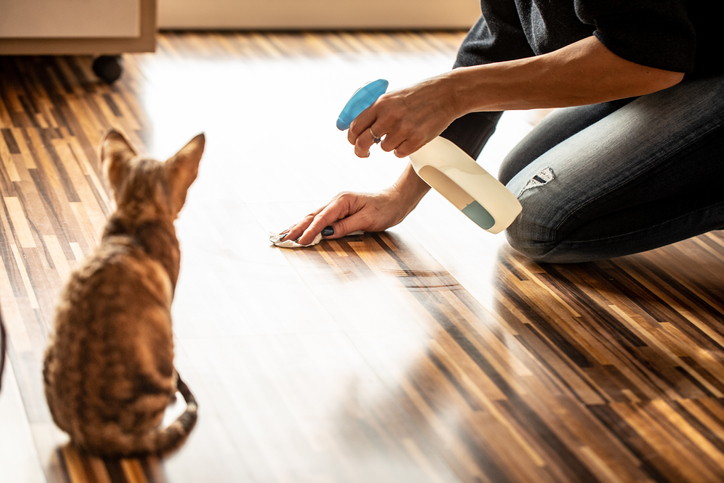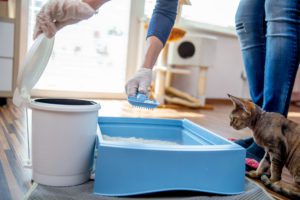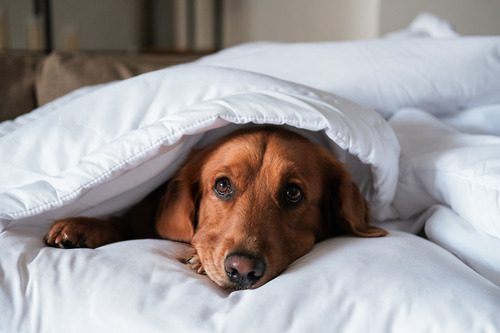Cat Urinary Tract Infections: Symptoms & Treatment
Cat urinary tract infections are painful for cats, just as much as they are uncomfortable for humans. You should know the symptoms to watch out for so you can have your cat promptly treated by your veterinarian.
If your feline has a urinary tract infection, they may be straining to urinate, or they may only be urinating in small amounts. They may also be urinating outside of their litterbox. You want your cat treated immediately to prevent complications like a urinary obstruction or kidney issues.
Treatment for UTIs involves antibiotics and possibly supportive care like fluid therapy. If you want to understand more about cat urinary tract infections, check out this article.
What is a Urinary Tract Illness?
Urinary tract contamination transpires when bacteria pass through the urethra and into the bladder. Urine within the bladder should be sterile, but when bacteria travel into the bladder, the bacteria can grow and reproduce. This bacteria triggers a urinary tract infection.
Sometimes cats can develop other related health issues besides having a UTI. A urinary tract infection is an instance of a feline lower urinary tract contamination. FLUTD is a multifaceted illness to make a diagnosis and treat, as there are numerous potential causes of the illness.
Male cats are more susceptible to developing FLUTD due to their narrower urethra more easily getting blocked. The condition can also occur more in overweight or middle-aged cats. In younger cats, bladder infections only cause FLUTD about 5 percent of the time due to the concentration of the cat’s urine and acid content preventing infection.
What Are the Causes of FLUTD?
There are many potential causes of FLUTD. There may be numerous influencing circumstances for the illness, and it would require a proper diagnosis from your vet. The following include some of the major causes of this unpleasant condition:
- Inability to hold pee due to excessive drinking or weak bladder
- Urethra obstruction is caused by a build-up of bacteria
- Spinal cord issues or injury to the urinary tract
- Exposure to trauma or environmental stress
- Bladder infection or urinary tract contamination
Other triggers of FLUTD include a wound or growth in the urinary tract or an inherited abnormality. If your feline gets a vet check and the reason for FLUTD is not established, they may identify it as an infection called cystitis, which is irritation and inflammation in the bladder.
What Are the Indicators of FLUTD in Cats?
You must take your cat’s urinary health seriously, as failure to do so can result in their urethra being partially or totally obstructed, which keeps your cat from achieving healthy urination. The subsequent are indicators of FLUTD in cats:
- Excessive thirst
- Excessive urination
- Only urinating in small amounts
- The pungent odor of the urine
- Urinating outside the litterbox
- Cloudy or bloody urine
Some other symptoms include a rigid or distended abdomen, excessive licking of the genital area, or an inability to urinate. If symptoms are not treated as soon as possible, it can lead to more severe problems, such as kidney failure or rupture of the bladder.

What is Treatment for Cat Urinary Tract Infections?
A cat who is experiencing a urinary tract infection needs immediate treatment. If your cat has a UTI, they are likely experiencing serious pain and need your help to get better. Take them to your vet, who will give them a physical exam and obtain a urine sample for analysis. If your vet determines that a UTI is present, they will likely prescribe antibiotics.
Antibiotics will either stop the bacteria from growing or completely abolish the bacteria altogether. When your vet prescribes an antibiotic, you are responsible for ensuring that your cat receives all of the medicine throughout the entire recommended course of treatment. If your cat has a bacterial condition, it is equally as important to administer the medication as directed.
If you fail to complete the course of antibiotics, you risk leaving your cat predisposed to reinfection. If you give them all their medicine and the infection still does not disappear, your vet can take a urine culture and sensitivity test. They help your vet determine the type of bacteria present and assess how it responds to antibiotics. Your cat may need supportive therapy in addition to antibiotics.
How To Prevent Cat Urinary Tract Infections
You can do specific things to help prevent your cat’s UTI from returning. Sometimes simply doing one or all these things will prevent a UTI. The following include some ways you can keep your cat from having a urinary condition:
Consider a Specialized Diet
There are certain foods that you can give your cat that is specifically for urinary conditions. You may try switching to wet food because it contains more water. Wet food offers a lot of hydration, which helps eliminate health problems, such as bladder inflammation or urinary blockage. Wet food and specialized food are suitable for your feisty feline’s kidneys.
Royal Canin makes a great wet cat food for protecting your cat’s urinary health. There are some other excellent options you can give your cat to try, like Purina dry cat food for urinary tract health. Special cat food can help keep your cat at a healthy weight, which may assist with maintaining good urinary health.
Make Sure Your Cat Drinks Enough Water
Keep your feline’s water bowl filled with fresh, clean water. If your cat is well hydrated, their urine concentration will be lower, which helps keep your cat’s urinary tract healthy by safeguarding it against bacteria. You may also want to get a drinking fountain for your cat, as many cats tend to be attracted to moving water.
Clean the Litterbox Daily
Make sure there are enough litterboxes in the house if you have a multi-cat household. Your cat should also be granted easy access to them. Scoop the boxes twice a day, or you may want to invest in an automated litterbox. Always have the litter your cat favors in the litterbox. It will ensure that your cat will feel comfortable urinating in the box.

Other FLUTD Issues
OF course, FLUTD is the proper term for a wide variety of urinary health issues in cats. UTIs are not as common. If you believe your cat has FLUTD or they are crying in their litterbox and not producing urine, take them to the vet immediately. The following include other urinary health problems your cat may encounter:
Urinary Stones
Urinary stones are hard lumps of crystals that form inside the bladder. They often occur when your cat has difficulty emptying their bladder.
Urinary Obstruction
Urinary obstruction is a blockage in the tube or tube where urine travels from the kidneys to the bladder. It may be caused by crystallized minerals in the urine.
Feline Idiopathic Cystitis
Feline idiopathic cystitis is when your cat’s bladder is inflamed from an unknown cause. It causes symptoms that mirror a UTI.
Conclusion
Urinary tract health is important to your cat. Keep your cat happy and healthy by working with your veterinarian to prevent or treat urinary tract issues in your feline companion.
For cat parents in the Plymouth Meeting, PA area, The Village Vets are available to serve you and your cat. Call us today at (484) 820-1700 or make an appointment!
Recent Posts
About The Village Vets
The Village Vets of Plymouth Meeting offers excellent service to clients in a comfortable, friendly atmosphere. To learn more about us and how we can better serve you and your pet here in Plymouth Meeting, PA, click the button below.
Share This Post
Recent Posts
About The Village Vets
The Village Vets is a network of three animal hospitals based in Atlanta, GA and the surrounding area. We offer honest, excellent service to our clients in a comfortable, friendly atmosphere. To learn more about our locations and how we can better serve you and your pet, click the button below.




